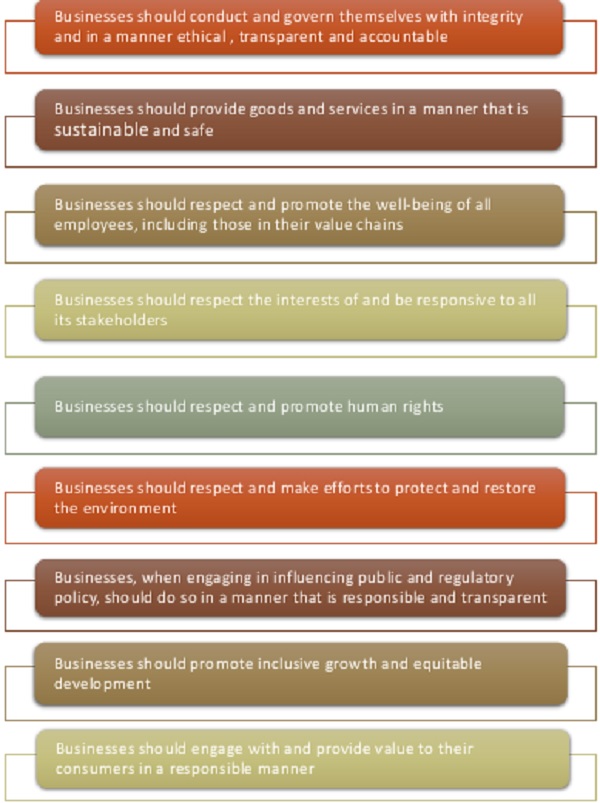Introduction
Mitigating climate change and adapting to sustainable and inclusive growth have emerged as major issues across the globe. Stakeholders are now focusing on businesses to be responsible and sustainable towards environment and society. Organisations globally are now required report not only financial and operational performance but their sustainability performance in order to bring transparency with stakeholders. ESG (Environmental, Social and Governance) reporting framework have evolved over time and organisations have been measuring and disclosing in areas related to Environmental, Social and Governance.

The Evolution of ESG
ESG Reporting in India has started with NVGs (National Voluntary Guidelines) issued by MCA (Ministry of company affairs) in 2011. Since then reporting framework have come a long way to BRSR (Business Responsibility and Sustainability Reporting).
In the year 2011 National Voluntary Guidelines on Social, Environmental & Economic Responsibilities of Business (NVGs) was issued by Ministry of Company Affairs. In 2012, subsequent to the release of the NVGs the SEBI mandated the top 100 listed companies to report their ESG performance through the Business Responsibility Reporting (BRR), a reporting framework based on 9 principles of the NVGs. In order to align the NVGs with Sustainable Development targets, NVG has been revised and National Guidelines on Responsible Business Conduct (NGRBC) was issued in 2019. Based on the principles set out in NGRBC new reporting framework i.e. Business Responsibility and Sustainability Reporting (BRSR) was issued by SEBI in 2021.

Overview
The BRSR is a quantitative and standardized disclosures on ESG parameters so as to enable comparability across companies, sectors and time. BRSR seeks disclosure from entities on the Nine principles of the “National Guidelines on Responsible Business Conduct” (NGRBC).
BRSR enables stakeholders to understand an entity more meaningfully by encouraging them to evaluate an entity looking beyond financials and towards social and environmental aspects. These disclosures will help investors in making better investment decisions considering ESG performance in addition to Financial and Operational performance.
Applicability
SEBI vide amendment to regulation 34 (2) (f) of LODR Regulations vide Gazette notification no. SEBI/LAD-NRO/GN/2021/22 dated May 05, 2021 has made it compulsory for the top 1000 listed entities. With the introduction of BRSR framework BRR has been discontinued.
As per these amendments top 1000 listed companies based on market capitalisation has to submit BRSR as per the prescribed framework from FY: 2022-23 onwards. For FY: 202122 option has been given to these companies to submit BRSR voluntarily so that these entities can make themselves ready for compulsory filing from FY: 2022-23 onwards.
Framework
On 05th May 2021, SEBI vide circular SEBI/HO/CFD/CMD2/P/CIR/2021/562 issued these frameworks. SEBI has also issued guidance notes to enable the companies to interpret the scope of disclosures.
BRSR is divided into 3 Sections:

Entities are required to evaluate their performance based on the performance indicators set out in the framework in terms of various question and information. These indicators are of two types: Essential and Leadership
While essential indicators are mandatory for all entities to disclose, leadership indicators are made voluntary for the companies to disclose. This section is aimed at helping entities demonstrate their performance in integrating the Principles and Core Elements of NGRBC with key processes and decisions.
The listed entities already preparing and disclosing sustainability reports based on internationally accepted reporting frameworks or in case the data sought in the reporting format is already disclosed in the annual report, may cross- reference the disclosures made under such framework to the disclosures sought under the BRSR. Thus, an entity need not disclose the same information twice in the annual report.
PRINCIPLES







I want BRSR article pdf.please provide me